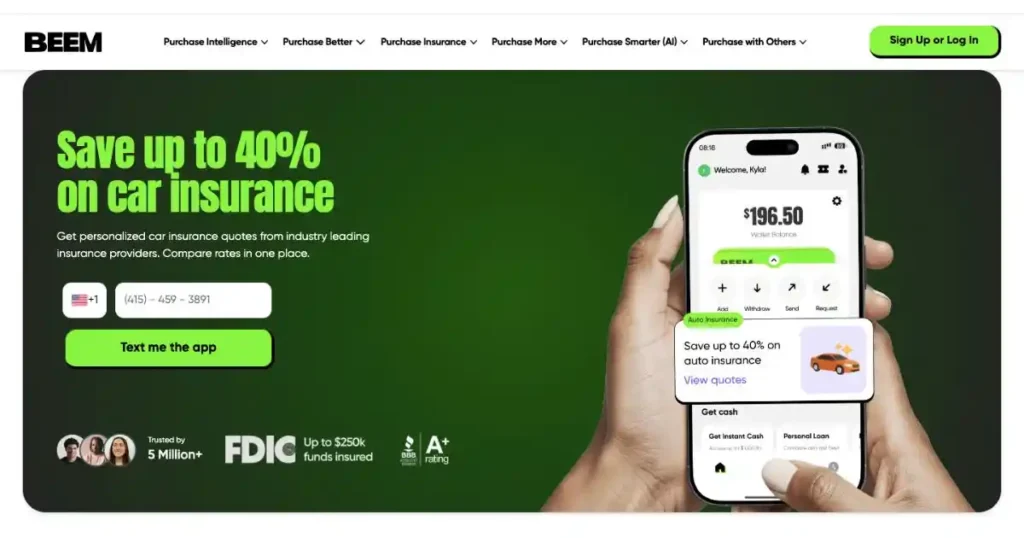Table of Contents
Car enthusiasts know the thrill of customizing a vehicle. Modifications make a car feel like yours, whether it’s the roar of a new exhaust system, the sleek look of a custom paint job, or the adrenaline rush from adding a turbocharger. But there’s a catch many overlook — these upgrades can cause your insurance policy to collapse when needed.
Insurance companies base their contracts on risk models that assume factory specifications. When you alter those specifications, you alter the deal. A modification may increase accident risk, raise repair costs, or even make your vehicle illegal for road use. And if your insurer finds out about an undeclared modification after a claim, they may void your policy entirely.
This blog explores how after-market modifications can void your policy. We’ll cover what counts as a modification, which upgrades void coverage versus those that raise premiums, and the importance of disclosure. You’ll also see real-life examples, international perspectives, and how Beem helps you find policies that work even if you love customizing your ride.
What Counts as After-Market Modifications?
Definition in Insurance Terms
In insurance language, an after-market modification is any change made to your vehicle after it leaves the manufacturer. Insurers distinguish these from factory upgrades or dealer-installed options, which are usually covered. Once you step outside that system, you must disclose changes to your insurer.
Common Types of Modifications
- Cosmetic Upgrades: Custom paint, vinyl wraps, spoilers, or tinted windows.
- Performance Enhancements: Turbochargers, engine swaps, or upgraded exhausts.
- Suspension and Wheel Changes: Lift kits, lowered suspensions, oversized rims.
- Technology and Entertainment: High-end sound systems, video screens and aftermarket GPS.
- Safety-Related Changes: Disabling airbags, altering brakes, or installing non-standard lighting.
Even small, inexpensive changes can count. A $200 tint job may seem harmless, but if it exceeds state laws, it becomes an issue for your insurer.
Why Insurers Care About After-Market Modifications
Increased Risk of Accidents
Performance modifications like turbochargers and ECU remapping make vehicles faster but harder to control. Suspension lifts change handling and increase rollover risks. Even cosmetic mods, such as overly dark tints, reduce visibility. Insurers see all these as factors that raise accident risk.
Higher Repair and Replacement Costs
Custom parts are more expensive and harder to replace than standard ones. A carbon-fiber hood or custom paint job costs thousands more than factory parts. That means if your car is damaged, your insurer faces higher payouts.
Non-Disclosure and Fraud
When drivers fail to disclose modifications, insurers treat it as dishonesty. Insurance contracts are built on transparency. Insurers reserve the right to cancel coverage if you’re hiding changes to keep premiums low.
Modifications That Commonly Void Coverage
Engine and Performance Enhancements
Performance upgrades are the most likely to void insurance. Adding a turbocharger, installing nitrous oxide, or swapping out your engine increases horsepower far beyond what manufacturers designed. Insurers argue this raises accident likelihood, making coverage invalid.
Suspension and Wheel Changes
Lift kits, lowered suspensions, and oversized rims can all impact stability and safety. These modifications change a vehicle’s center of gravity or stress critical parts, such as brakes and steering. Insurers see them as unnecessary risks.
Illegal or Non-Compliant Modifications
Coverage is typically voided immediately if a modification violates state or federal law. Examples include window tints darker than the legal limit, underglow neon lights, or headlights that don’t meet DOT approval. A car must be street-legal to be insurable.
Unauthorized Safety Changes
Insurers won’t cover cars with tampered safety systems. Disabling airbags, altering brakes, or removing seatbelts are considered reckless. Even if unrelated to an accident, these changes give insurers a reason to deny claims.
Modifications That Raise Premiums but Don’t Void Coverage
Aesthetic Upgrades
Custom paint, vinyl wraps, and body kits don’t usually void coverage but can raise premiums. These upgrades increase the replacement cost of your car, which insurers factor into higher payouts.
In-Car Entertainment
High-end speakers, subwoofers, and video systems add value but also pose a theft risk. Insurers typically cover these if disclosed, though they may cap reimbursement at a set amount unless you buy extra coverage.
Security Features
Not all modifications are bad. Adding an alarm, GPS tracker, or immobilizer can reduce theft risk. In fact, some insurers may reward you with lower premiums for making your car more secure.

The Importance of Disclosure
Why Transparency Matters
Insurance relies on trust. You’re expected to be upfront about the state of your car. Failing to disclose modifications is a breach of contract. Even if a modification didn’t cause the accident, insurers can deny your claim if it wasn’t declared.
Consequences of Non-Disclosure
- Claim Denial: Insurers can refuse to pay for repairs or liability.
- Policy Cancellation: You may find yourself uninsured without realizing it.
- Financial Liability: You’re personally responsible for damages and repairs.
Example Scenario
A driver installs a $5,000 sound system but doesn’t disclose it. When the car is stolen, the insurer reimburses only the factory value, excluding the system. The driver loses the entire $5,000 investment.
How to Stay Protected if You Modify Your Car
Inform Your Insurer Early
Always call your insurer before making changes. Some modifications may only slightly raise your premium. Others could require switching to a new policy.
Ask About Specialized Coverage
Specialized modified car insurance exists. While it costs more, it ensures that upgrades like performance parts or custom paint jobs are covered.
Keep Documentation
Receipts, professional installation records, and compliance certificates protect you during claims. Without proof, insurers may argue your modification was unsafe.
Follow Legal Requirements
Know your local laws. Tinted windows are legal in Arizona but may not pass inspection in New York. Staying compliant helps keep coverage valid across states.
Real-Life Examples of Policies Voided by Modifications
- Turbocharged Civic (California): Claim denied after undeclared turbocharger installation increased horsepower.
- Lifted Truck (Texas): Policy voided after rollover accident linked to suspension lift.
- Neon Glow Car (Florida): Claim denied because underglow lighting made the car illegal to drive.
- Sound System Case (New Jersey): Theft claim partially denied when a $3,000 sound upgrade wasn’t disclosed.
- Race-Ready Mustang (New York): Coverage canceled after airbags were disabled for racing purposes.
These cases prove that failing to disclose modifications can cost tens of thousands of dollars.
International Perspectives on Modifications and Insurance
United States
Laws vary by state. What’s legal in Nevada may void coverage in New York. Always check local requirements.
United Kingdom
Insurers in the UK are strict. Even small, undeclared changes, like aftermarket rims, can void coverage. Many modifications are caught during annual MOT inspections.
Australia
Performance modifications require engineering certificates. Without them, insurers often refuse coverage.
Japan
Car culture thrives, but regulations are tight. Insurers quickly deny claims if exhaust or lighting changes aren’t declared.
Middle East
Extreme modifications are culturally accepted, but insurers generally exclude coverage unless everything is disclosed upfront.
The Psychology of Insurers: Why They’re Strict
Risk Models
Insurers rely on data tied to factory specifications. Modified vehicles break these models, making them unpredictable.
Moral Hazard
Statistics show that drivers with performance modifications are more likely to speed or drive aggressively, and insurers account for this risk.
Fairness Across Policyholders
If insurers covered modifications without charging more, costs would rise for everyone. Strict rules keep premiums fair for stock car owners.
Legal Angle: Can Insurers Void Policies?
Yes. Auto insurance contracts include clauses requiring disclosure of modifications. If you fail to disclose, you’ve breached the agreement. Courts typically side with insurers in these disputes. For example, in several US cases, insurers legally denied claims where modifications were undeclared or made vehicles illegal to drive.
Specialty Insurance and GAP Coverage
Specialty Modified Car Policies
Enthusiasts with multiple upgrades can buy modified car insurance. These policies cover performance and aesthetic changes but cost significantly more.
GAP Insurance
If your modified car is totaled, GAP insurance covers the difference between the loan balance and the car’s actual cash value. Without it, you could be left paying thousands out of pocket.
How Beem Helps Drivers Avoid Surprises
Beem empowers drivers by simplifying insurance. It lets you compare policies side by side, including how insurers treat modifications. Some providers are more modification-friendly, while others void coverage for even small changes.
With Beem, you can:
- Find insurers that accept performance upgrades.
- Identify policies that reward added security features.
- Avoid insurers that penalize cosmetic modifications too harshly.
Conclusion
Customizing your car is about passion and individuality. But insurers see modifications differently. Every upgrade changes risk, cost, or legality; without disclosure, it can void your coverage completely. The solution is to balance customization with responsibility. Always disclose changes, keep documentation, and consider specialty insurance if needed.
Tools like Beem help you navigate insurers’ rules, ensuring your passion for car culture doesn’t expose you financially. It provides a convenient platform for comparing car insurance quotes and discovering affordable rates tailored to individual needs. Take the first step towards securing reliable coverage with Beem. Download the app here.
FAQs About How After-Market Modifications Can Void Your Policy
Do all modifications void insurance?
No. Some, like custom paint, raise premiums. High-risk mods like turbochargers or illegal tints are more likely to void coverage.
Can I insure a heavily modified car?
Yes, but you’ll need specialized insurers. These policies are more expensive but protect your investment.
What happens if I don’t disclose modifications?
Your insurer can deny claims, void your policy, and mark you as high-risk for future coverage.
Are cosmetic changes safer than performance mods?
Yes. Insurers focus primarily on performance and safety changes. Cosmetic changes usually increase costs.
How does Beem help?
Beem shows insurers’ stances on modifications, ensuring you choose one that matches your customization goals.















































